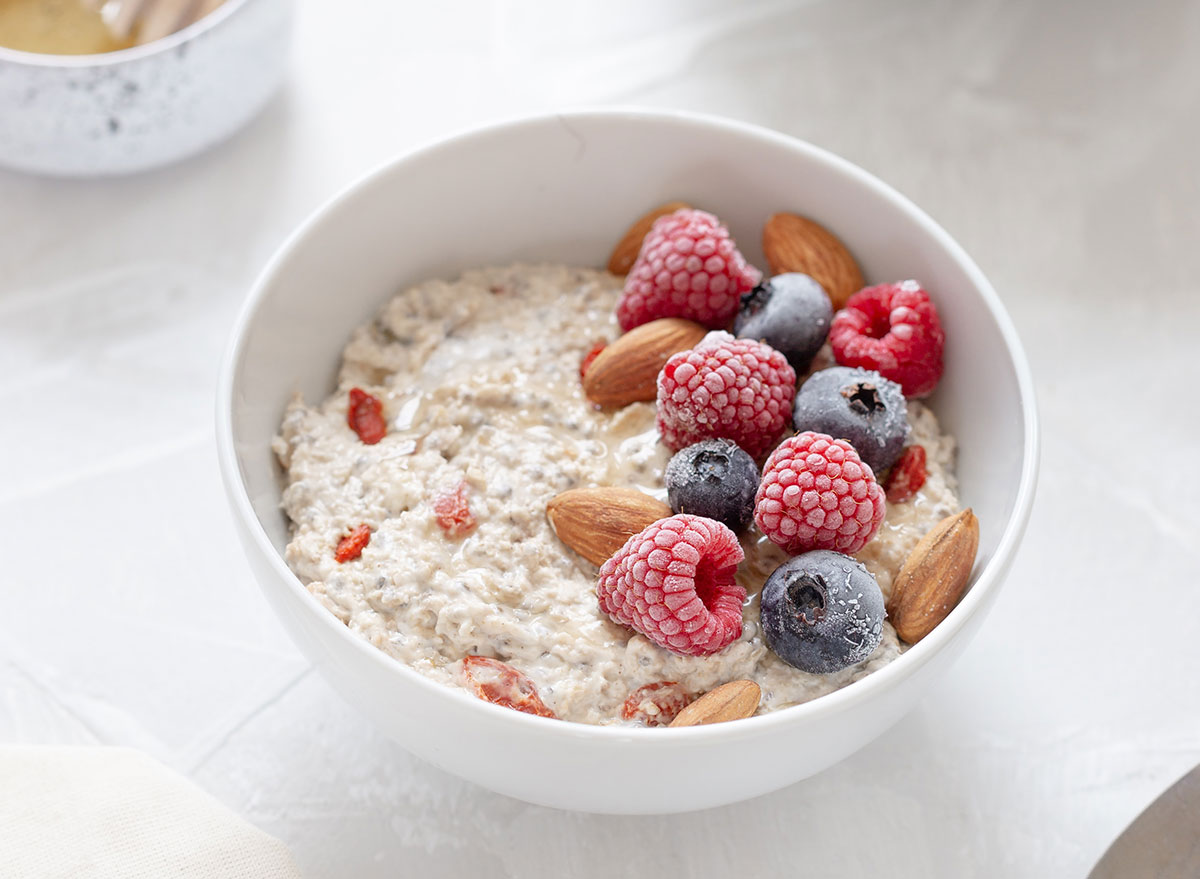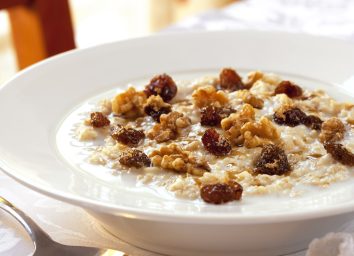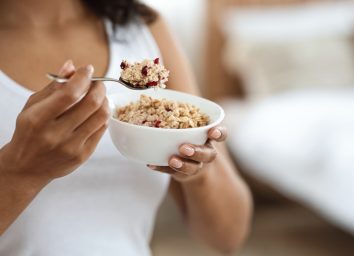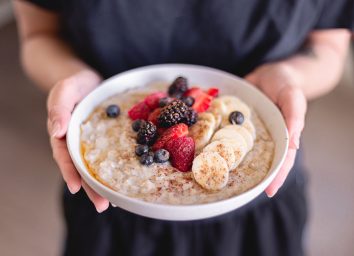Surprising Side Effects Oatmeal Has On Your Heart, Says Science
Ever wonder why oatmeal is considered a heart-healthy breakfast? This morning staple is constantly recommended by doctors and dietitians when it comes to choosing a heart-healthy breakfast. But why exactly is oatmeal considered healthy for your heart? We asked a few experts the real reason behind why this breakfast food is considered healthy for your heart, and their answers did not disappoint. Here are a few surprising side effects oatmeal has on your heart (the good and the bad), and for even more healthy eating tips, be sure to check out our list of The 7 Healthiest Foods to Eat Right Now.
Oatmeal can reduce your cholesterol.
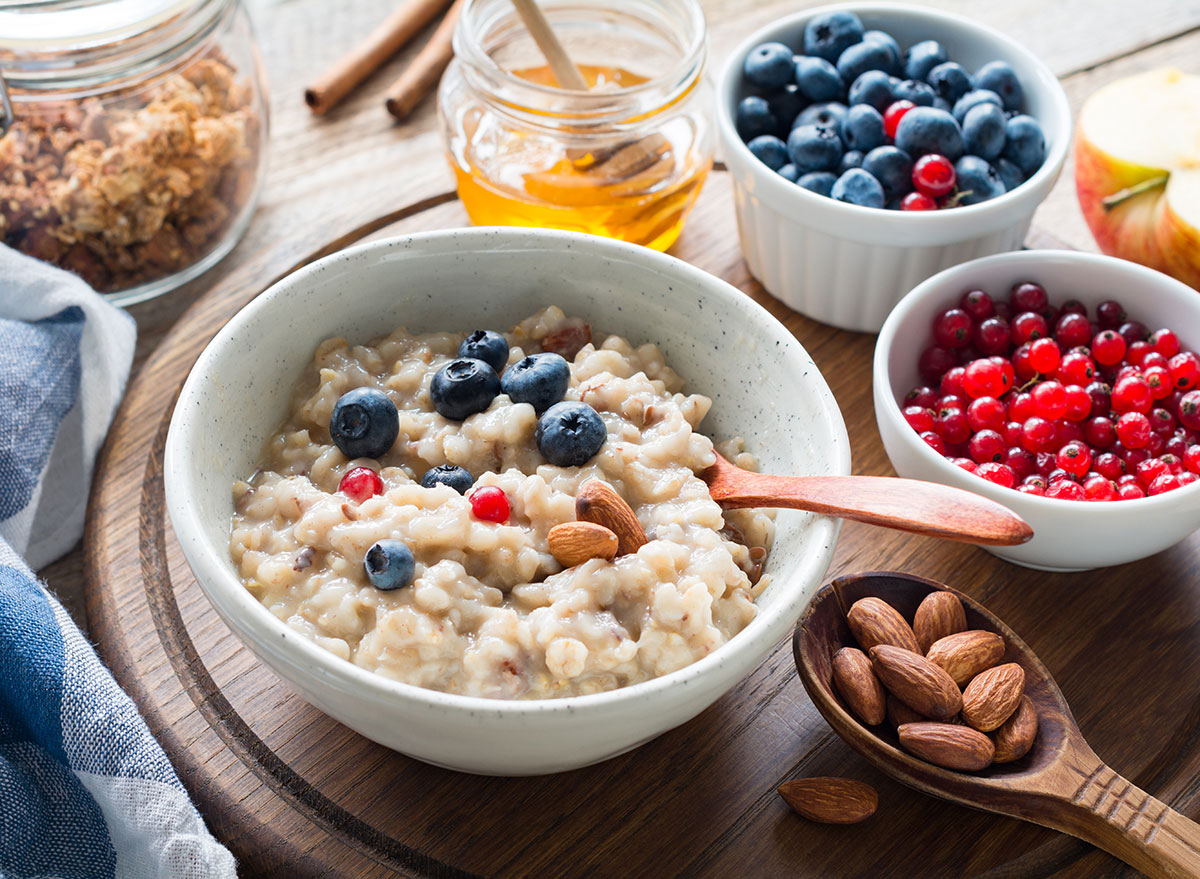
"Eating oatmeal is a great way to support a healthy heart due to its soluble fiber content," says Amy Goodson, MS, RD, CSSD, LD, and author of The Sports Nutrition Playbook. "Soluble fiber can help lower total and 'bad' LDL cholesterol, which might help reduce your risk of cardiovascular disease. Adding toppings to your oatmeal like berries, sliced almonds and/or seeds can also help increase your fiber content and the flavor."
Here are 17 Foods That Lower Cholesterol.
Oatmeal gives you a boost of fiber—which helps with heart health.
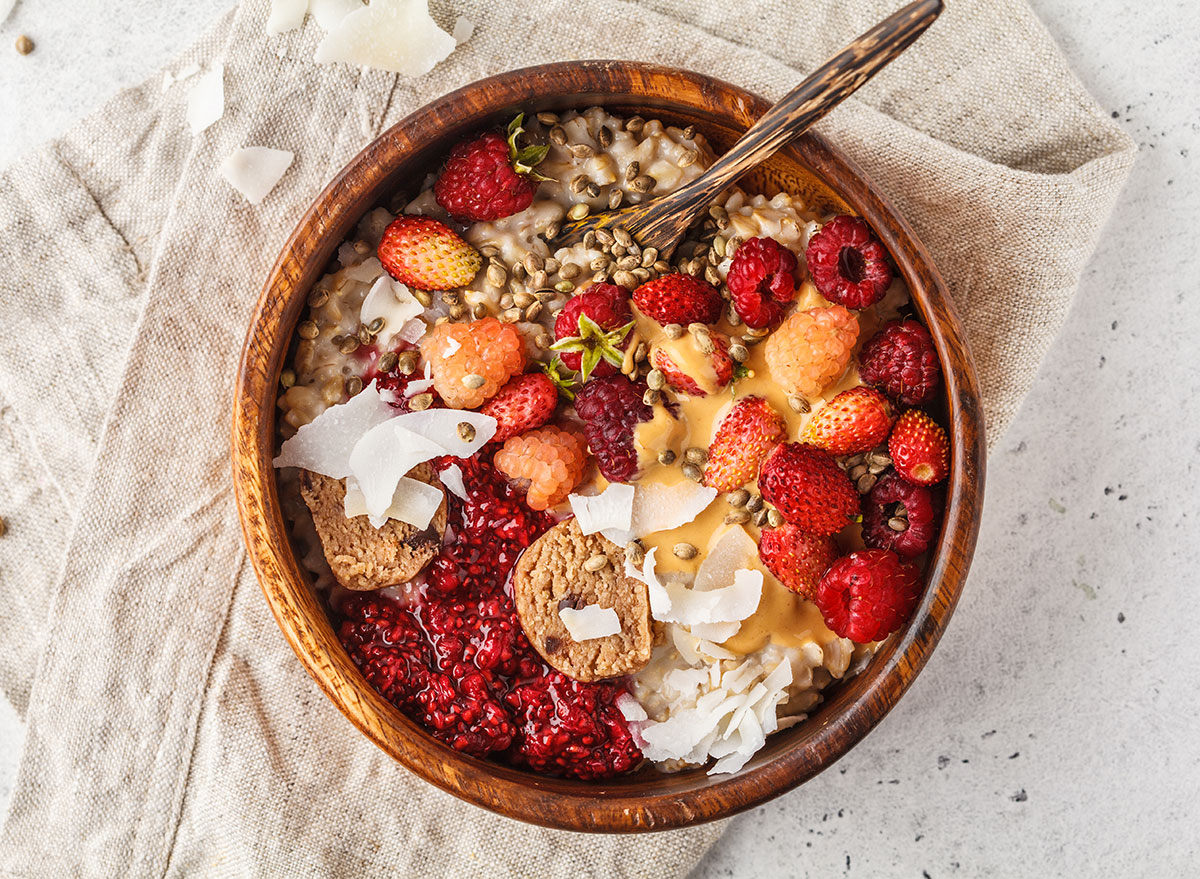
"Oatmeal can be a very heart-healthy breakfast option, especially if it's loaded with nutritious toppings," says Sarah Schlichter, MPH, RDN of Bucket List Tummy. "Oatmeal is a fabulous source of beta-glucan fiber, a form of soluble fiber that is linked to improving LDL and total cholesterol levels, and therefore aiding in heart health. On its own, plain oatmeal is free of added sugars and combined with its high fiber content, it is a great option for blood sugar control. When topped with high fiber options like fruit, nuts, and seeds, oatmeal gets even more of a nutrition boost."
Get even more healthy tips straight to your inbox by signing up for our newsletter!
Sugary oatmeals can increase your risk of heart disease.

"I generally advise people to stay away from the single-serving flavored oatmeal, which is usually very high in sugar," says Sarah Schlichter, MPH, RDN of Bucket List Tummy. "Excess sugar may be linked to an increased risk of cardiovascular disease. Instead, flavor your oatmeal at home with cocoa powder, nut butters, nuts, seeds, fruit, and spices, like cinnamon, nutmeg, cloves, and ginger."
Make sure to also avoid The Unhealthiest Way to Prepare Oatmeal, According to a Dietitian.
The sodium content can also increase heart disease risk.
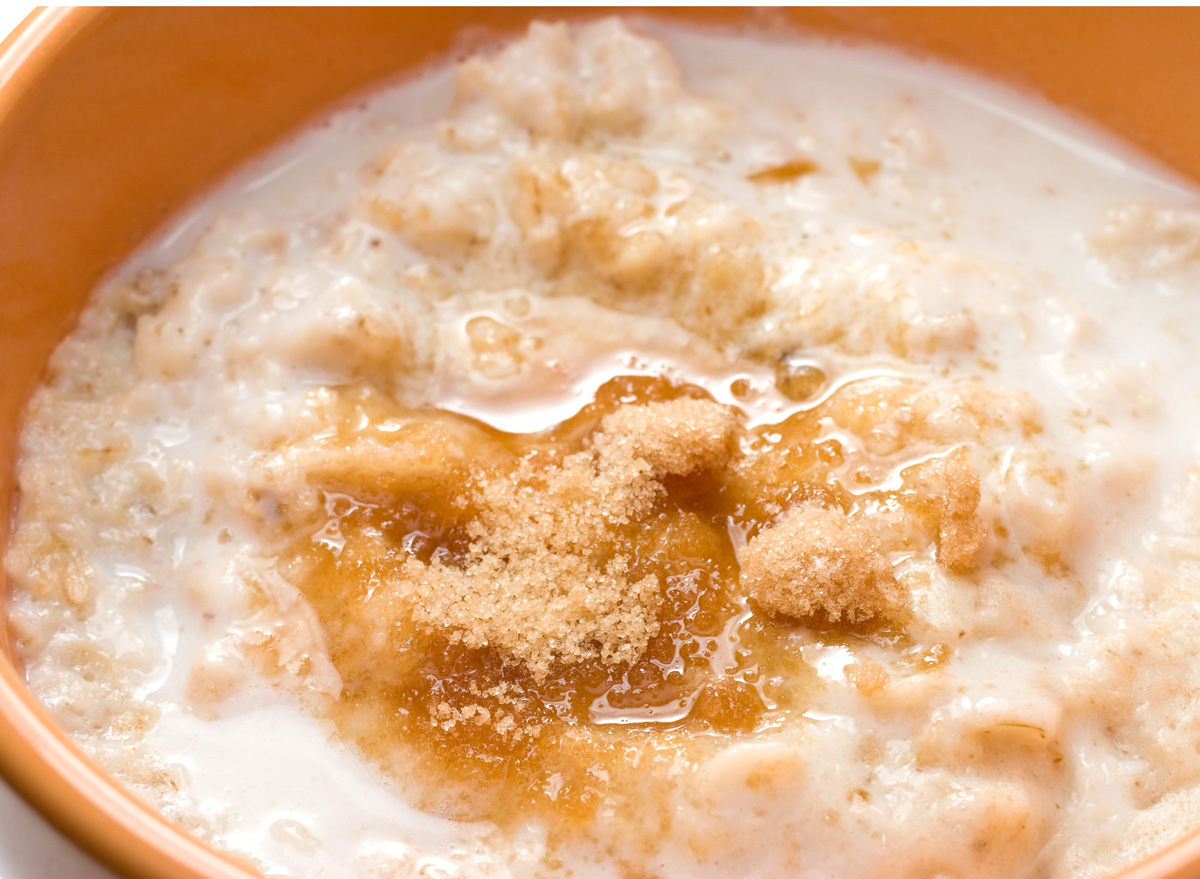
"One downside of oatmeal is that many types of oatmeal, especially instant oatmeal, are extremely high in sugar and sodium," says Megan Byrd, RD, from The Oregon Dietitian. "These two ingredients make the oatmeal taste better and cook much faster, but are not great for our heart health and likely cancel out any benefits we may get from eating oatmeal at all. Instead, try making oatmeal with regular oats, and storing it ahead of time. Or, bake it into a healthy protein cookie for breakfast on the go!"
Oatmeal aids weight loss, which helps your heart.
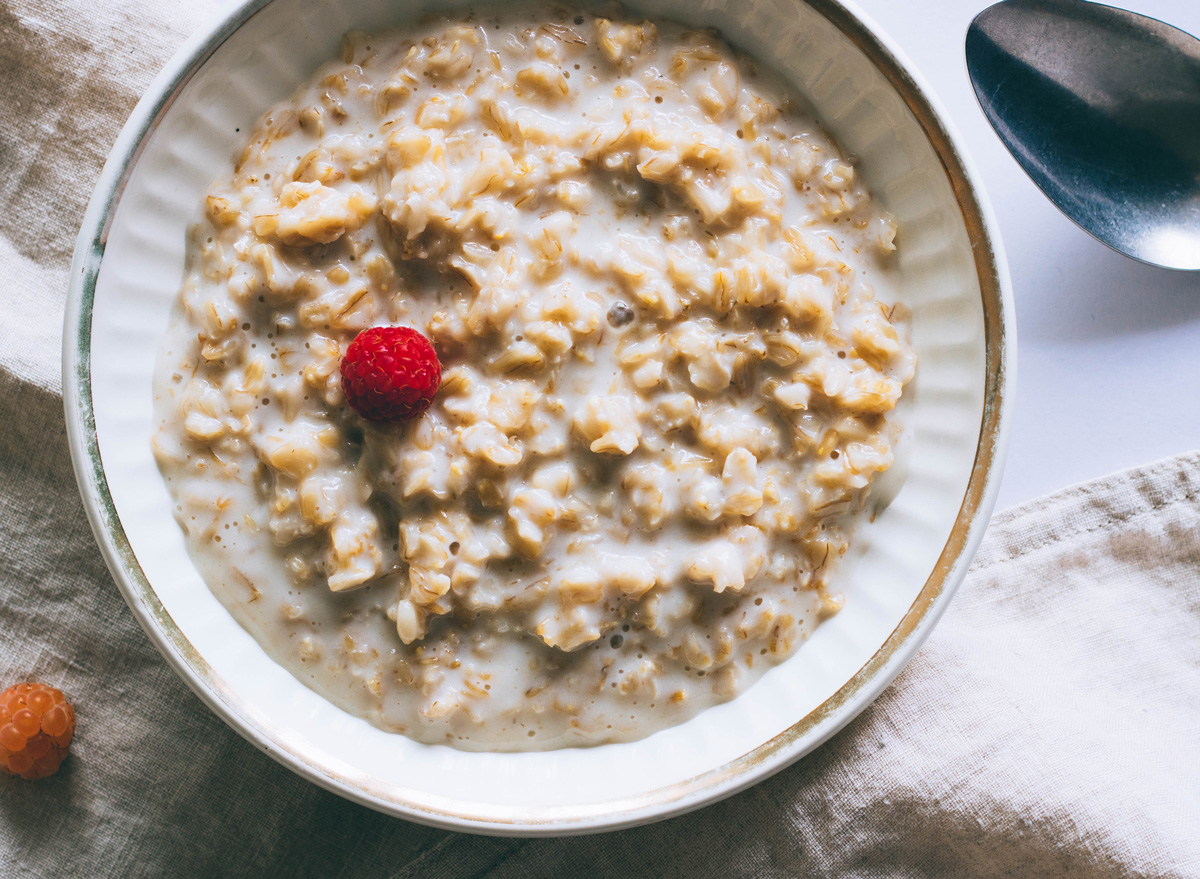
"Oatmeal contains fiber which helps to lower cholesterol," says Jamie Feit, MS, RD, and expert at Testing.com. "Fiber also helps you feel full which helps with weight loss. Both lowering cholesterol and weight reduction are tools to keep your heart healthy. Try making the oatmeal with water and add fresh fruit and nuts to make it taste good."
Here's why fiber is considered The #1 Thing To Eat Every Day To Lose Weight For Good.
Sugary oatmeal can increase chances of diabetes.
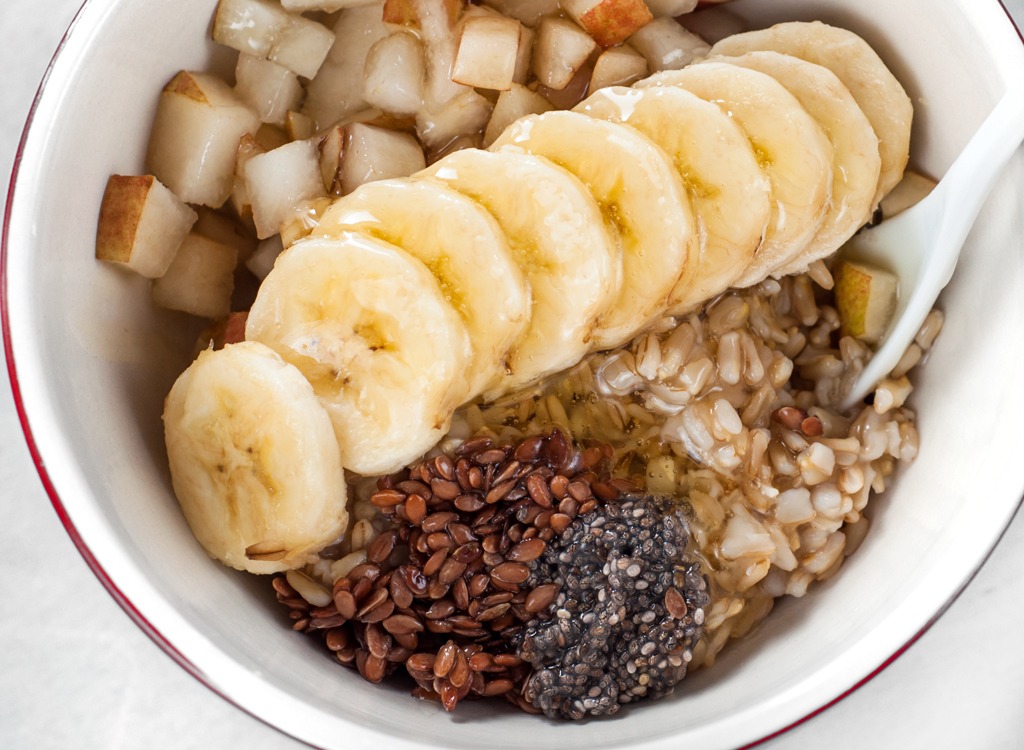
"If you have an extra sugary, pre-packaged oatmeal or include an excessive amount of sugary toppers (like loading up on the brown sugar or maple syrup) as well as adding butter or other high saturated fat items can turn oatmeal into more of a dessert," says Ricci-Lee Hotz, MS, RDN at a Taste of Health and Expert at Testing.com. "If oatmeal is consumed in this way combined with multiple similar choices throughout the day, this could lead to some opposite effects such as fatty deposits on your heart or other organs, increased chances of diabetes, and even potentially canceling out the cholesterol-reducing effects of the oatmeal itself."
Unhealthy added ingredients can cause inflammation.

"Unfortunately, as with many healthy foods, most of the health qualities of oatmeal are nearly negated when flavor enhancers like butter, sugar, and syrups are added," says Trista Best, MPH, RD, LD, with Balance One Supplements. The excess calories and inflammatory ingredients can put stress on the heart through increased blood pressure, cholesterol, and weight gain."
Oatmeal contains nutrients that protect your heart.
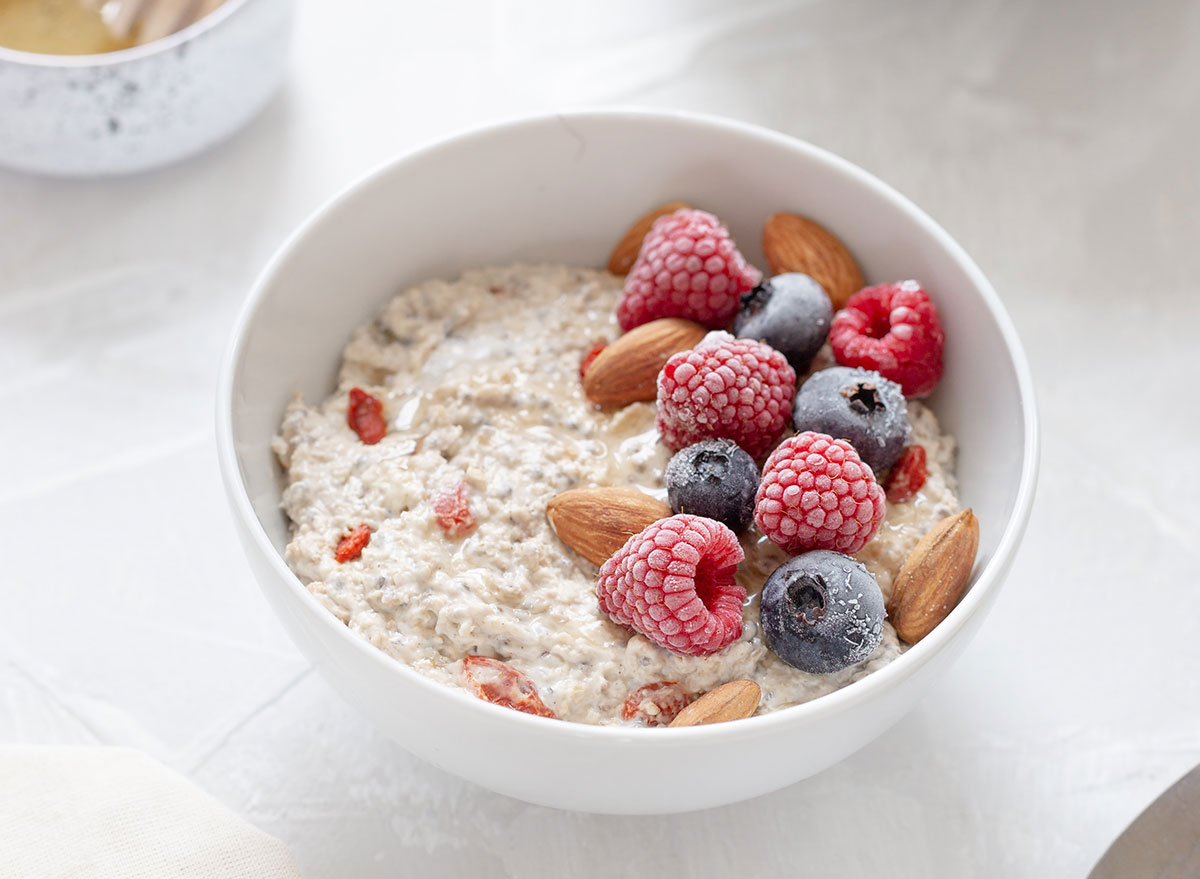
"Oats are among the healthiest grains on earth and are incredibly nutritious. [They] are known as a heart healthy food that reduced the risk of heart disease," says Talia Segal Fidler, MS, HHC, AADP, and holistic nutritionist from The Lodge at Woodloch. "Whole oats are high in antioxidants and vitamins, including vitamin E, which is known for its heart-protecting benefits.
Lisa R. Young PhD, RDN, and the author of Finally Full, Finally Slim, points out how oatmeal also contains magnesium and potassium, which are two minerals that are good for your heart.
"Oatmeal made with whole oats and without added sugar, reduce cholesterol and blood sugar levels, promotes healthy gut bacteria, and increases feelings of fullness," says Segal Fidler. "Eating oats will make you feel full longer and as a result, will help you keep a healthy weight which is essential for a healthy heart."
Segal Fidler maximizes the health benefits of oatmeal by adding blueberries, walnuts, chia seeds, and cinnamon, to her oats—which she cooks either in water or almond milk. Or try adding one of these 11 Healthy Oatmeal Toppings That Help You Lose Weight.
